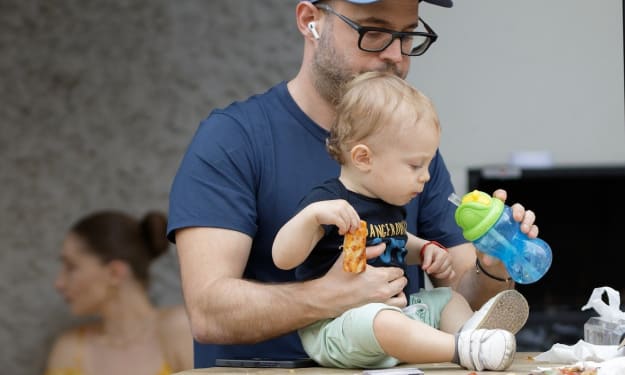Effective Communication Strategies Between Parents and Children
The Importance of Effective Communication

Communication is the cornerstone of a healthy parent-child relationship. Effective communication fosters understanding, trust, and respect, creating a strong bond between parents and children. This article explores various strategies to enhance communication between parents and their children, ensuring a harmonious and supportive family environment.
The Importance of Effective Communication
Effective communication between parents and children is vital for several reasons:
- Builds Trust: Open and honest communication helps build trust between parents and children. When children feel heard and understood, they are more likely to trust their parents.
- Promotes Emotional Well-being: Effective communication allows children to express their feelings and emotions. This emotional outlet is crucial for their mental health and well-being.
- Encourages Positive Behavior: Clear communication about expectations, rules, and consequences can guide children towards positive behavior.
- Strengthens Relationships: Consistent and meaningful communication strengthens the parent-child relationship, creating a supportive and nurturing environment.
Strategies for Effective Communication
1. Active Listening
Active listening is a fundamental component of effective communication. It involves fully concentrating on what the child is saying, without interrupting or judging.
- Pay Attention: Give your full attention to your child when they are speaking. Put away distractions like phones or other devices.
- Show Empathy: Acknowledge your child's feelings and show empathy. Phrases like "I understand how you feel" can validate their emotions.
- Reflect and Clarify: Reflect back what your child has said to ensure understanding. Ask clarifying questions if needed. For example, "It sounds like you're upset because your friend didn't invite you. Is that right?"
2. Use Positive Language
Positive language fosters a supportive and encouraging environment. It helps children feel valued and respected.
- Be Encouraging: Use positive reinforcement to encourage good behavior. Praise your child for their efforts and achievements.
- Avoid Negative Words: Refrain from using negative or critical language. Instead of saying "Don't do that," try saying "Let's do this instead."
- Express Appreciation: Regularly express appreciation for your child's positive actions and qualities. This boosts their self-esteem and motivation.
3.Be Clear and Consistent
Clarity and consistency in communication help children understand expectations and boundaries.
- Set Clear Expectations: Clearly communicate your expectations and the reasons behind them. This helps children understand the importance of rules and guidelines.
- Be Consistent: Consistency in communication and actions builds trust. Children need to know that their parents mean what they say and follow through with their promises.
- Simplify Messages: Use simple and age-appropriate language. Avoid using jargon or complex words that may confuse your child.
4. Create an Open Environment
An open environment encourages children to share their thoughts and feelings without fear of judgment or criticism.
- Be Approachable: Let your child know that they can come to you with any issue, big or small. Create a safe space for open dialogue.
- Avoid Overreacting: Respond calmly to your child's disclosures. Overreacting can make them hesitant to share in the future.
- Encourage Expression: Encourage your child to express their thoughts and feelings. Ask open-ended questions that invite them to share more about their experiences.
5. Use Non-Verbal Communication
Non-verbal communication, such as body language, facial expressions, and tone of voice, plays a significant role in conveying messages.
- Maintain Eye Contact: Maintain eye contact to show that you are engaged and interested in what your child is saying.
- Use Appropriate Facial Expressions: Your facial expressions should match the tone of the conversation. Smile when discussing positive topics and show concern when addressing serious issues.
- Be Mindful of Tone: Your tone of voice can influence how your message is received. A calm and gentle tone can convey warmth and understanding.
6. Practice Patience
Patience is essential for effective communication, especially when dealing with challenging topics or behaviors.
- Give Time: Allow your child time to express themselves fully without rushing them. Be patient as they articulate their thoughts and feelings.
- Stay Calm: Stay calm, even if the conversation is difficult or emotional. Reacting calmly helps de-escalate tension and promotes a constructive dialogue.
- Be Understanding: Understand that children may struggle to communicate their emotions and thoughts. Offer guidance and support as they learn to express themselves.
7. Engage in Regular Conversations
Regular conversations help maintain a strong connection between parents and children.
- Daily Check-ins: Make it a habit to check in with your child daily. Ask about their day, their feelings, and their experiences.
- Family Meetings: Hold regular family meetings to discuss important topics, share updates, and address any concerns. This fosters a sense of belonging and teamwork.
- Share Stories: Share stories from your own life to encourage your child to open up. Storytelling can be a powerful way to connect and communicate.
8. Address Conflicts Constructively
Conflicts are inevitable in any relationship. How they are addressed can significantly impact the parent-child relationship.
- Stay Calm: Approach conflicts calmly and avoid raising your voice or using harsh words.
- Listen to Understand: Listen to your child's perspective and try to understand their point of view before responding.
- Find Solutions Together: Collaborate with your child to find mutually agreeable solutions. This teaches problem-solving skills and respect for others' opinions.
Conclusion
Effective communication between parents and children is essential for building a strong, trusting, and supportive relationship. By practicing active listening, using positive language, being clear and consistent, creating an open environment, using non-verbal communication, practicing patience, engaging in regular conversations, and addressing conflicts constructively, parents can foster a healthy and nurturing communication dynamic with their children. These strategies not only enhance the parent-child relationship but also contribute to the overall well-being and development of the child.
About the Creator
Enjoyed the story? Support the Creator.
Subscribe for free to receive all their stories in your feed. You could also pledge your support or give them a one-off tip, letting them know you appreciate their work.






Comments
There are no comments for this story
Be the first to respond and start the conversation.